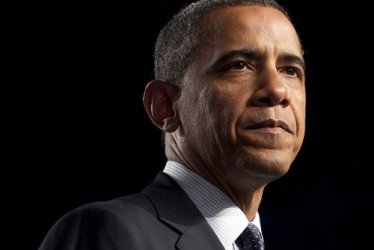South Sudan dropped from US free trade benefits program
December 24, 2014 (WASHINGTON) – The White House announced on Tuesday that South Sudan has been removed from the list of sub-Saharan African countries enjoying special trade status with the United States.

There were no specifics on the set of requirements not met by both countries.
“Accordingly, I have decided to terminate the designation of South Sudan and The Gambia as beneficiary sub-Saharan African countries”.
Under U.S. law the president has the power to determine which countries in sub-Sahara Africa can join the program after performing an annual evaluation process.
South Sudan has been designated as an AGOA-eligible country in December 2012.
AGOA was established in 2000 to provide eligible sub-Saharan African countries to export a wide variety of products to U.S. markets duty free including apparel, footwear, and some agricultural and processed food products.
At the time US officials said that this designation will help support South Sudan’s economic development.
But relations between Washington and Juba has worsened substantially since South Sudan became independent in 2011
It started with reports that South Sudan leader Salva Kiir during one of his official visits to Washington after independence, misled Obama about Juba’s alleged support to Sudanese rebels fighting in South Kordofan and Blue Nile states.
A year ago, the South Sudanese government and rebel forces have been engaged in an armed struggle after a political dispute in ruling party (SPLM) that turned violent, reigniting tribal tensions and plunging the nation to the brink of civil war.
Human rights groups say they have documented grave abuses and atrocities by both sides.
Peace talks between the warring parties have been hampered by ongoing delays and disagreements, with the international community becoming increasingly frustrated over the lack of progress.
Multiple ceasefire agreements brokered by the Intergovernmental Authority on Development (IGAD), which is mediating peace talks between the warring parties, have also failed to halt the violence.
The US has circulated a draft UN Security Council (UNSC) resolution that would authorize sanctions against individuals who threaten South Sudan’s peace and security.
The US, along with the European Union (EU) and Canada have already frozen the assets of and imposed a travel ban on individual government and rebel officials deemed to be hampering peace efforts in the country.
Kiir sent a special message to Obama this month pleading with the US administration and its western allies not to turn their backs on his administration.
The new US directive, activists argue, will directly hurt South Sudan’s private sector growth
“South Sudan’s warring parties should be blamed for failing to bring peace and causing violence that led to gross human rights violations,” Edmund Yakani, the executive director for Community Empowerment for Progress Organisation (CEPO) told Sudan Tribune on Thursday.
“CEPO feels this decision should be an opportunity for South Sudan government and SPLM-OI [armed opposition] to take serious steps to ensure peace prevails in early 2015,” he added.
Washington’s decision, Yakani stressed, is a wake-up call for the private sector who were seemingly reluctant in efforts to bring an end to the country’s ongoing violence.
“CEPO feels this decision will be a wake-up call for South Sudan private sector to take proactive roles in pursuing the warring parties to stop violence and bring peace,” he said.
(ST)
